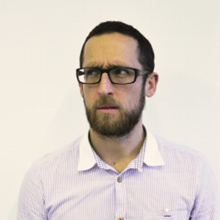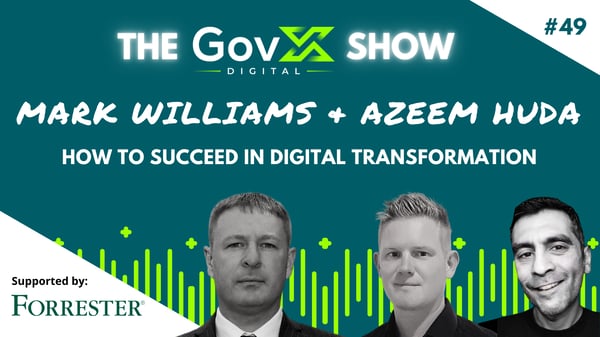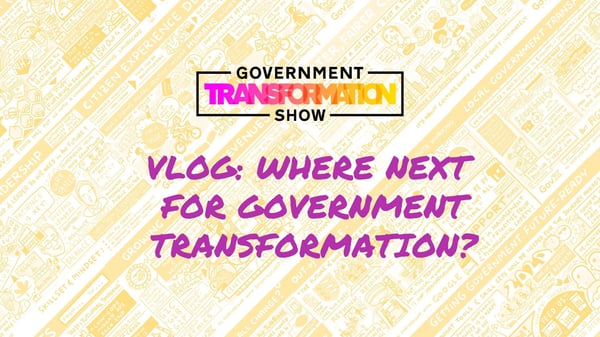Digital transformation in Local Government
Local government has been transformed during the pandemic and teams around the county are working to build on the wins from the last couple of years. Four sector executives shared what has changed for them and their organisations - and how technology is continuing to drive transformation.
Building capability and community
The past four years have been extremely hectic for the London Borough of Haringey. Until the end of 2018, the local authority shared digital services with the boroughs of Camden and Islington. Since then, Haringey has been rebuilding its own services and developing what was started even further, said Melissa Kemp-Salt, Head of Portfolio (Digital Services) at the London Borough of Haringey.
“In digital services, there have been two things going on,” Kemp-Salt shared with LocalGov Transformation Show delegates. “One is building capability (whether that’s people or platform capability) and the other a real focus on community and the things that we've done there to support our service areas.”
At Essex County Council, Ben Unsworth, Director of Service Transformation, has also been collaborating with colleagues across the organisation to understand problems from the perspective of the service user.
 “For us, the big focus coming out the other side of the major Covid response has been resetting and rethinking the ambitions of what we are trying to do,” he said. “The challenges are still the same, it’s still very much about closing that gap between residents’ expectations of how our services work, particularly in the digital space, and delivery.
“For us, the big focus coming out the other side of the major Covid response has been resetting and rethinking the ambitions of what we are trying to do,” he said. “The challenges are still the same, it’s still very much about closing that gap between residents’ expectations of how our services work, particularly in the digital space, and delivery.
“It's also closing the gap for our colleagues as I think they have traditionally been underserved in terms of some of the tools that they use in their workplace. So we're having a real think about the things we can do to make our colleagues' lives easier.”
The last few years have been “quite a journey” for the team of Kurt Frary, CTO at Norfolk County Council, who claimed that his organisation is now “fundamentally different” to what it was a year ago.
Frary said: “It’s fundamentally different both in people, processes, infrastructure, and working with our suppliers. It’s about doing things differently for our staff but it's also for the residents.”
Local government CDIO and consultant, Mark Adams-Wright, has substantial experience working across many councils and said that over the last 12 to 18 months there have been two clear themes when it comes to transformation in local government, namely sustainability and viability.
He is often involved in conversations about how viable it is to do what was done during the height of the pandemic and how that circle can be squared today since what was necessary then, is still necessary now.
“Unfortunately, the compelling actions slightly abated from where it was before,” Adams-Wright said. “The other one is sustainability. We all know that the resourcing market is pretty tough and that access to digital skills and people is tough. Sadly, it's a little bit who has the biggest fist of dollars that seems to get the biggest grasp of the skills that are out there.”
Overcoming technical debt
For Frary, it was clear that technology should not necessarily drive transformation but support it. When staff could not access the office printer during lockdowns, the organisation had to offer technology-enabled alternatives. However, Frary said that these kind of initiatives must be led by the business function rather than by the ICT department.
“Sometimes our business and our people do not understand what the possible is and us, as technology leaders, have to show the art of the possible,” he said. “And you can't do that without showing some tech but you need to get the subject matter experts on board with understanding it without scaring them because at the end of the day, you could make things more difficult just simply by putting the technology in.”
Technologists have certainly a role to play within local government transformation and should be brought on board, added Adams-Wright. However, they should be included for what “they are good at”, in other words: tech. The T on DDaT is essential for digital transformation, and although local government has a huge technical debt, he continued, the culture surrounding the technology function is changing.
“We are starting to see the reintroduction of software developers back into organisations that were not flavour of the month doing things like web DevOps and other kinds of funky things,” Adams-Wright told his co-panellists. “You start to realise the rhetoric change, the language has changed, and therefore the mindsets are changing with it.”
Technology leaders need to have a clear vision of what they want to achieve by the introduction of new platforms or technology solutions, said Kemp-Salt. Providing context and maintaining conversations with different business units across an organisation and those providing the technology can help avoid that.
Unsworth added that technologists should also support teams like his in making services as accessible and inclusive as possible, particularly to those people that perceive web and digital services as a “hostile environment”. The skills found in multidisciplinary teams can help bring these issues to the forefront and “getting into stuff that is transformative” when working together with the frontline staff who better understand user needs.
“Tech in those cases can really be a superpower,” Unsworth said. “There are some technical things we have to do properly to make sure that [vulnerable and non-digital users] are not excluded by making the best possible use of our data, working with open standards, having API's between products… This is all pretty challenging technical stuff where we need excellent technologists!”
The 'Digital Transformation in Local Government' panel was sponsored by Kerv Experience and is available to watch on demand here.






